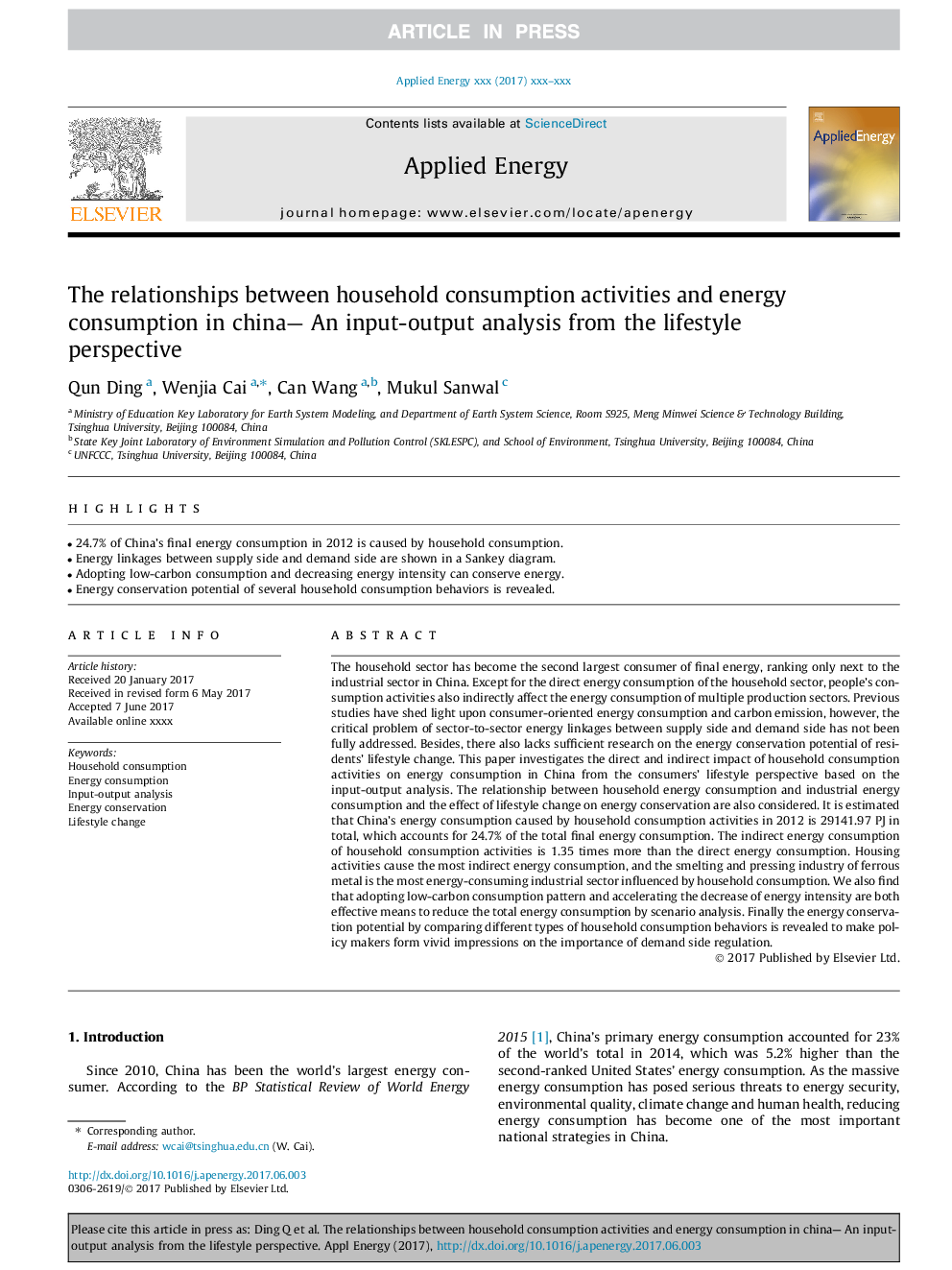| Article ID | Journal | Published Year | Pages | File Type |
|---|---|---|---|---|
| 6681935 | Applied Energy | 2017 | 13 Pages |
Abstract
The household sector has become the second largest consumer of final energy, ranking only next to the industrial sector in China. Except for the direct energy consumption of the household sector, people's consumption activities also indirectly affect the energy consumption of multiple production sectors. Previous studies have shed light upon consumer-oriented energy consumption and carbon emission, however, the critical problem of sector-to-sector energy linkages between supply side and demand side has not been fully addressed. Besides, there also lacks sufficient research on the energy conservation potential of residents' lifestyle change. This paper investigates the direct and indirect impact of household consumption activities on energy consumption in China from the consumers' lifestyle perspective based on the input-output analysis. The relationship between household energy consumption and industrial energy consumption and the effect of lifestyle change on energy conservation are also considered. It is estimated that China's energy consumption caused by household consumption activities in 2012 is 29141.97 PJ in total, which accounts for 24.7% of the total final energy consumption. The indirect energy consumption of household consumption activities is 1.35 times more than the direct energy consumption. Housing activities cause the most indirect energy consumption, and the smelting and pressing industry of ferrous metal is the most energy-consuming industrial sector influenced by household consumption. We also find that adopting low-carbon consumption pattern and accelerating the decrease of energy intensity are both effective means to reduce the total energy consumption by scenario analysis. Finally the energy conservation potential by comparing different types of household consumption behaviors is revealed to make policy makers form vivid impressions on the importance of demand side regulation.
Keywords
Related Topics
Physical Sciences and Engineering
Energy
Energy Engineering and Power Technology
Authors
Qun Ding, Wenjia Cai, Can Wang, Mukul Sanwal,
